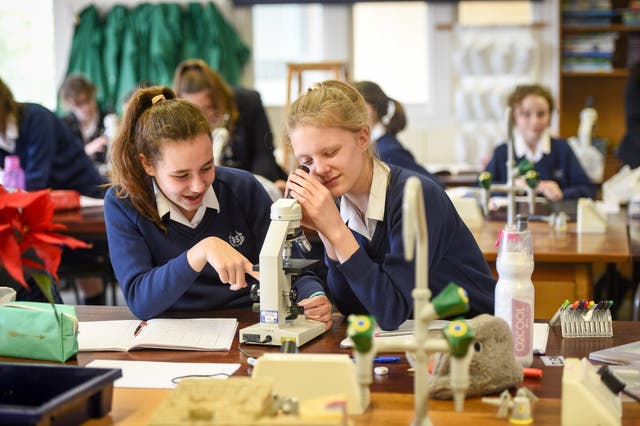Students in the UK are continuing to lag behind their peers from smaller European countries such as Estonia and Finland when it comes to maths, reading and science, a bellwether study of global education trends has suggested.
Asian nations, including Singapore and Hong Kong, continue to dominate the latest triennial Programme for International Student Assessment (Pisa) report, a survey of 15-year-old students from around the world to assess the extent to which they have acquired key skills and knowledge.
And while the UK’s ranking across the three disciplines has improved on the score from three years ago, the country still languishes outside the top 10 – with little chance of breaking into the upper echelons any time soon, experts predict. UK students also scored well below average on measures of life satisfaction and happiness.
The UK’s score in science – based on the results of two-hour tests, featuring 13,818 students from 538 schools across the country – continued a downward trend which has seen the UK plummet from 515 points in 2006 to 505 points in 2018, Tuesday’s report showed.

But there were positive in maths and reading, with the points score rising in the last three years from 492 to 502, and from 498 to 504, respectively.
By comparison, the four areas of China that participated in the study – Beijing, Shanghai, Jiangsu and Zhejiang (BSJZ) – scored highest across all three subjects, with a total of 591 for maths, 555 for reading, and 590 for science.
Estonia and Finland ranked fifth and sixth for reading, and fourth and sixth for science.
The data, published by the Organisation for Economic Co-operation and Development (OECD), ranks the UK as joint-14th for reading, 14th for science and 18th for maths, out of the 79 countries and territories taking part.
It found 15-year-old students in BSJZ outperformed by a large margin their peers from all of the other 78 participating education systems, in mathematics and science.
The report said: “In this context, and given the fact that expenditure per primary and secondary student rose by more than 15% across OECD countries over the past decade, it is disappointing that most OECD countries saw virtually no improvement in the performance of their students since Pisa was first conducted in 2000.”
The data also found only around one in 10 students is able to distinguish between fact and opinion.
Andreas Schleicher, OECD education and skills director, said: “In the UK things have been more or less stable, but we have seen a decline in science.
“The slide in science is not a recent phenomenon.
“It is hard to get good science teachers, there is a shortage and something a lot of countries are facing.

“There are positive signals – in reading and maths, there is momentum.
“Overall, I think we can talk about signals of progress in the UK. The perception is that things are going in the right direction.”
But he said it would take “a long time” for the UK to get close enough to break into the top-five for maths, reading and science.
He said: “I think the UK needs to think hard about how to invest resources – a better system might be more important than more money.”
The data also showed girls outperformed boys in maths and reading, but performed similarly in science.
But the study, which runs to more than 1,000 pages across three volumes, also measured students’ wellbeing, with just over half (53%) of those polled in the UK saying they were satisfied with their lives – significantly lower than the average across OECD countries (67%).
Just over one-in-three students from the UK (35.1%) described themselves as “always happy”, below the OECD average of 41.0%.
Carole Willis, chief executive of the National Foundation for Educational Research, said: “Pisa provides a valuable and rigorous way for nations to benchmark their pupils’ performance and learn from policies and practices in other countries.
“Pupils in England have continued to perform well in reading and science and have made significant improvement in maths.
“What requires further analysis and consideration is pupils’ perception of their wellbeing.”


















